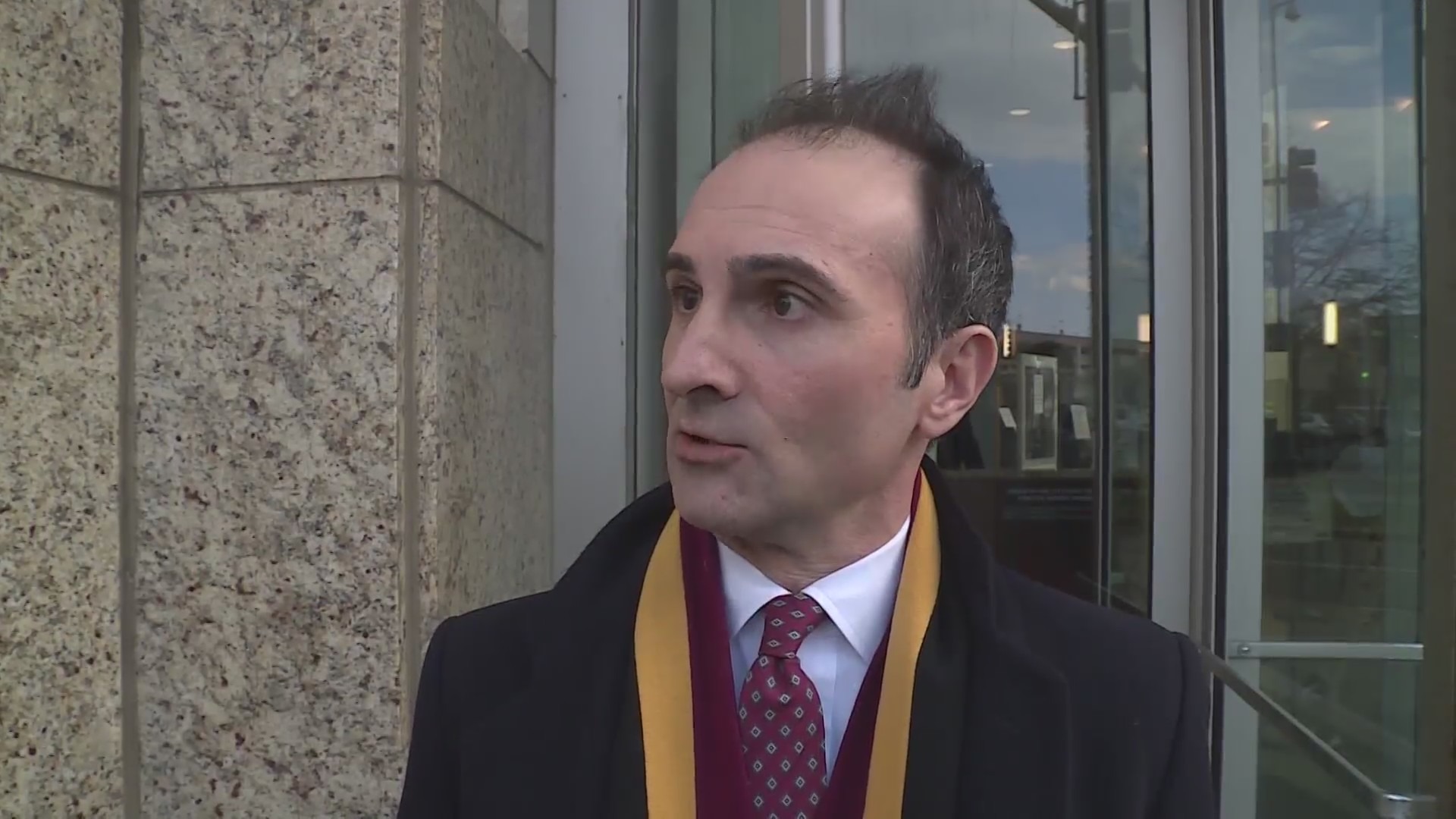A sentencing hearing for the former leader of the Proud Boys, Enrique Tarrio, was abruptly delayed Wednesday morning due to an unknown emergency, his lawyer and Justice Department officials said.
Tarrio is staring down decades in prison after being convicted of seditious conspiracy in connection with the Jan. 6 attack on the Capitol.
Prosecutors have requested 33 years in prison for Tarrio, the highest sentencing sought for anyone convicted in connection to the riot. Prosecutors said Tarrio influenced “countless subordinate members” of the Proud Boys and the general public in a conspiracy to forcefully stop a peaceful transfer of power following the 2020 election.
In federal court in Washington, D.C., on Tuesday ahead of the expected sentencing, Tarrio joined four other members of the right-wing extremist group who were tried earlier this year. Each of the defendants were convicted in May of serious felonies, and all but one were convicted of sedition.
Tarrio had asked the court for less prison time than what the Justice Department (DOJ) recommended but did not request a specific sentencing range, according to court filings. Instead, he argued against the use of a terrorism enhancement in deciding his sentence.
To apply the terrorism enhancement prosecutors are seeking, defendants must have committed an offense that “was calculated to influence or affect the conduct of government by intimidation or coercion, or to retaliate against government conduct.”
Tarrio was not at the Capitol on Jan. 6, 2021, but throughout his four-month trial, prosecutors said he led a plot to keep former President Trump in the White House.
Assistant U.S. Attorney Jason McCullough told U.S. District Judge Timothy Kelly on Tuesday that the jury’s findings in the high-profile case showed that the defendants intended to coerce the government that day.
“The focus of this was obstructing the peaceful transfer of power. … That is a significant crime,” McCullough said. “They did it, they prepared to do it, they recruited individuals they believed could help them do it.”
Tarrio attorney Sabino Jauregui countered that the one-time leader’s absence at the Capitol should prevent Kelly from applying the enhancement.
“Tarrio wasn’t present; he wasn’t there,” Jauregui said. “He did not control the Proud Boys on Jan. 6.”
Kelly will likely rule on use of the enhancement for each defendant at their individual sentencings later this week.
The DOJ also gave Proud Boys member Joe Biggs — one of Tarrio’s co-defendants and a former correspondent for conspiracist Alex Jones’s “InfoWars” — a 33-year sentence recommendation. The government requested sentences ranging from 20-30 years for the other three defendants: Ethan Nordean, Zachary Rehl and Dominic Pezzola.
At the hearing Tuesday, law enforcement officers who defended the Capitol on Jan. 6 described the lasting effects of that day in victim impact statements.
The Capitol attack was the first time U.S. Capitol Police officer Shae Cooney was unsure if she would make it home at the end of the day, she told Kelly during the hearing.
“Feeling my phone vibrate for hours, knowing my family was trying to reach me and I couldn’t do anything for hours, was very heartbreaking,” she said through tears, taking breaks from speaking to wipe her eyes with tissues.
Cooney said she knew her job’s daily duties could range from pointing tourists to the nearest Starbucks to defending the nation’s legislature. But she couldn’t have imagined what happened Jan. 6, she said.
“I never thought I’d be fighting my own fellow citizens that day,” she said. “To have a group of people who on any other day were very pro-police, pro-law enforcement, pro-United States, for hours continuously attack us and beat us with ‘thin blue line’ flags — I never thought I’d see that happen.”
Capitol Police Inspector Thomas Loyd used his statement to push back against claims that law enforcement failed to do their jobs Jan. 6, saying that he witnessed “the most violent fighting in my 33-year career” that day.
“Despite their tremendous beating, all those who could walk showed up for work the next day,” Loyd said, choking up. “I could not have been prouder.”
During the Proud Boys’ months-long trial, prosecutors said they engaged in a “consistent drumbeat” of calls for violence after Trump lost the 2020 election. The group gained notoriety when Trump urged them to “stand back and stand by” during his first debate against President Biden in response to being asked if would denounce the group.
After Trump lost the 2020 election, Tarrio issued his own command on the alternative social media platform Parler, according to trial evidence, which read: “Standby order has been rescinded.”
Prosecutors said during the trial that the extremist group viewed itself as “Donald Trump’s army” on the day the Capitol was attacked, while defense attorneys argued the true culprit was the former president himself, who riled up the mob of his supporters and pointed them toward the Capitol.
“It was Donald Trump’s words, it was his motivation, it was his anger that caused what occurred on Jan. 6,” another Tarrio attorney, Nayib Hassan, said in closing remarks of the trial.
Trump has since been charged in two criminal cases linked to his efforts to stay in power following his election loss. The federal case in Washington, D.C., charges Trump with conspiring to overturn the election, resulting in the Capitol attack — efforts meant to obstruct a “bedrock function” of a democracy, according to his indictment.
The former president is the leading Republican candidate in the 2024 presidential race. A federal judge Monday set his D.C. trial to begin March 4, the day before Super Tuesday.
Updated at 9:32 a.m. ET





